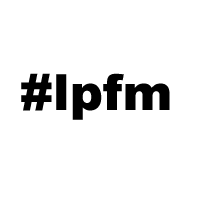 We’ve been writing quite a bit about low-power FM radio here at Radio Survivor. That’s because we think it’s an incredible opportunity to greatly expand community media in the US. It’s also a chance for online-only college stations to take to the airwaves inexpensively. Jennifer explained 10 reasons why online college stations should take advantage of the LPFM licensing window.
We’ve been writing quite a bit about low-power FM radio here at Radio Survivor. That’s because we think it’s an incredible opportunity to greatly expand community media in the US. It’s also a chance for online-only college stations to take to the airwaves inexpensively. Jennifer explained 10 reasons why online college stations should take advantage of the LPFM licensing window.
I don’t think we can stress enough how important it is for interested community groups and wannabe community broadcasters to get ready to apply in October. This is all the more critical because, as Matthew explained last Friday, this is probably the last opportunity to get on the air so easily.
No doubt the application process can look complicated, especially if you’re not already steeped in radio engineering. However, it’s also crucial not to over-think or make the process any more difficult than it has to be.
In particular, there seem to be two misconceptions that are causing some would-be applicants to get discouraged.
First, some are worried because they’re not ready to build a station by October, or even this year. This is a simple one to dispel: your group does not have to have a station ready before applying.
You don’t have to have any equipment at all. You don’t need to worry about building a station until your license application is approved at the FCC issues you a construction permit. So don’t worry much about it now.
Second, would-be applicants are getting overwhelmed by the perception that they need to do a lot of community organizing, incorporating and other official non-profit stuff in advance of even applying. While the FCC does have some basic requirements that an applicant be a real community group, the actual qualifications are not stringent.
One misnomer that appears to be driving this is the mistaken belief that a group has to be an IRS recognized 501(c)(3) tax-exempt non-profit organization in order to qualify for an LPFM license. It is understandable why such a requirement seems formidable–obtaining 501(c)(3) status can be a lengthy, involved process. Luckily, a group does not have to be a (501)(c)(3) to apply or get a license.
In order to qualify for an LPFM license an organization only must be a “noncommercial educational non-profit organization.” This can be a school, college or university. But it could also just be an organization dedicated to educational purposes, as long as it isn’t a for-profit business and can demonstrate how its station’s programming would assist the group’s educational mission.
You don’t necessarily need to have articles of incorporation or other official documents. In this case it is a good idea to have community members willing to sign affidavits attesting to your organization’s local presence. Additionally, you can also show documentation of events and meetings, such as flyers, meeting minutes and newsletters.
If the organization that is applying for the license has been around a while that certainly is helpful. When there are multiple applicants competing for a frequency the FCC uses a point system to determine the winner. Points are awarded for things like being able to prove an established community presence for at least 2 years, giving a group that meets this criterion an edge over a younger group. For a very clear breakdown of the LPFM requirements, look at the Prometheus Radio Project’s “Preparing to Apply Checklist.”
But even if your group is relatively new, don’t let that discourage you. Your group doesn’t have to have a large board of directors or staff. In terms of size it just can’t be a single individual, and it needs to be able demonstrate an educational mission.
There also may be opportunities to partner with other local organizations that have been around longer and would benefit from a station, but need additional help to bring it to fruition. If you don’t already have contacts with local non-profits this is a good reason to reach out. You may find out about other efforts to apply for an LPFM, giving you an opportunity to coordinate or cooperate so as not to duplicate efforts or compete unnecessarily.
Finally, you don’t have to go it alone. Groups like Common Frequency and Prometheus Radio Project can provide advice, support and many training resources to help with the application process. RadioSpark provides a forum for current and prospective LPFM broadcasters to exchange ideas and advice.
Schools, colleges and universities can turn to the Intercollegiate Broadcast System and College Broadcasters–your school doesn’t have to have a station already to get their help. As well there are firms like REC Networks who are offering assistance with engineering questions at reasonable rates.
Refer to our LPFM page for links to more resources, or drop us a line with your LPFM question. If we don’t know the answer we’ll assist in getting help.


